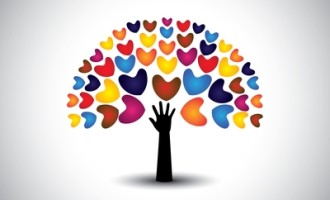
Feeling connected key to one’s health
January 3, 2017
[Posted in the Homer News on 12.01.16]
Tis the season for community. This is the time of year when families connect over the Nutcracker, friends collect over meals, and people are on call to help out neighbors or strangers when pipes freeze or a car goes off the road.
As much as I would prefer to focus on this rosy picture of Homer, I know that there are people who feel alone and isolated at this time of the year. How do I know this? Because the MAPP 2015 Perceptions Survey was taken last year around this time.
Remember filling out a survey at the Health Fair last year? Remember questions like “I have supportive and loving relationships in my life — Always, Frequently, Sometimes, Never”? Of the hundreds of respondents, 11 percent chose “Sometimes” or “Never.”
That is a sobering thought. I imagine one in 10 people I know feeling lonely enough to mark that box. It has been shown that feeling connected is an integral part of health and well-being, so what can we do as a community to strengthen the support systems for people?
Or more to the point, what are those support systems? Would it mean more chances to mingle and get to know others? Or does it mean that stressors in life like, say, not having child care when you need it, are lessened or totally taken care of?
How is feeling loved and supported different for different age groups? For youth it is a known fact that they will be able to deal with the traumas and dramas of life better if they have more adults in their life that they feel they can talk to. Knowing this, how do we as a community set up systems to connect youth with more adults?
The Nutcracker is one of the prime examples of a community level resiliency factor built into our yearly schedule. Kids get to interact with each other as well as lots of other adults ranging from other parents to the directors to the producer. Even brief encounters with adults as role models can change a kid’s life.
We are so lucky here in so many ways. But there are still more questions. How do seniors in our community also find connection and support? What about parents?
One of the tidbits of information that has come out of the three community assessments MAPP has completed over the years is that Homer has a unique challenge of people moving here without family. Very few people enjoy the connection of extended family of three generations here. That means we have to consciously create our families.
Maybe your kids’ favorite aunt is actually a costume designer at the Nutcracker. Maybe your parents’ favorite niece is actually the “Little” that they were paired with from Big Brothers Big Sisters. Building a Choose-Your-Own-Adventure-style family needs more community level support than a traditional old style family that all grows up on the same road or in the same neighborhood together.
Are we succeeding? How healthy is our community? The answers to that depend on your perspective. For example, we have found in all the MAPP surveys (conducted in 2008, 2012, and 2015) that people perceive that substance abuse is our number one problem in the community. What’s interesting is that substance abuse never ranks in even the top three of problems in their own families.
This is what makes the mountains of data, interviews, surveys and other numbers and statistics about our community so interesting. We can compare the perceptions with the realities. It has been a huge job. Dozens of organizations and hundreds of individuals have participated to get all this data collected.
And now it is time to look at the data about our community, identify the issues that can be tackled at the community level, and do something about it. How strong are our support systems? What systems are people using and what do we lack? What can we do better?
It is in this spirit that MAPP is hosting a community meeting at 8:30 a.m. Dec. 9 at Kachemak Bay Campus. It will be the official coming out party for the most recent round of community data collection and the start of that conversation answering “How do we move forward?”
And as MAPP community meetings always do, it also will highlight some of the great community level projects that are happening in our little town. Yet another way to see how we are connected in this season of sharing.
Kyra Wagner is the coordinator of Sustainable Homer and a member of the MAPP steering committee, among many other things.

